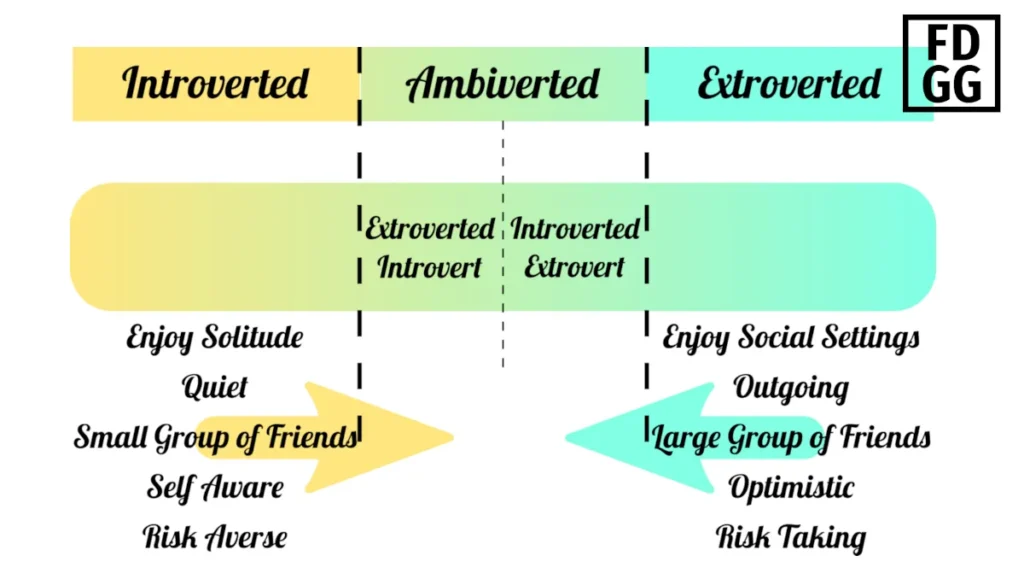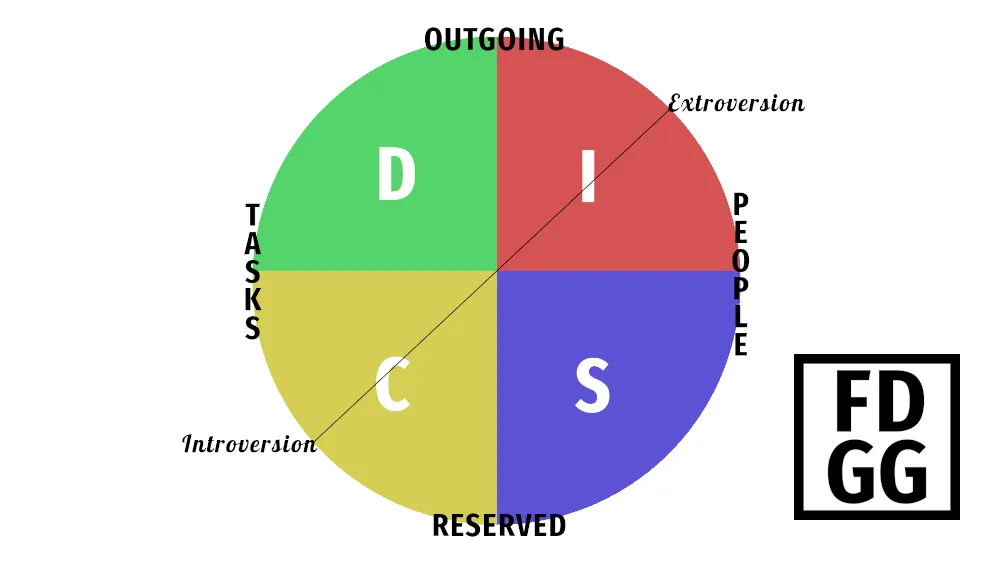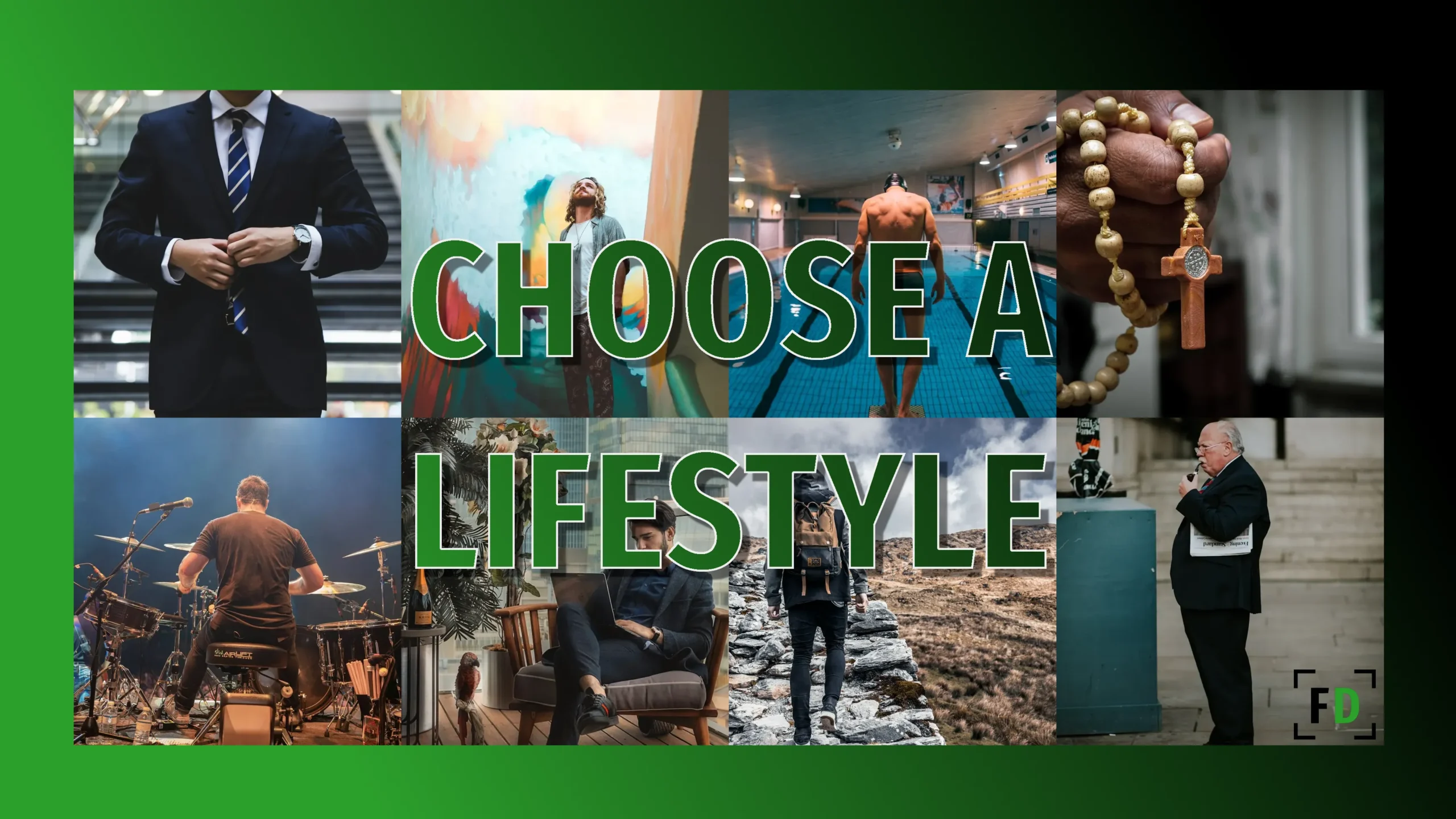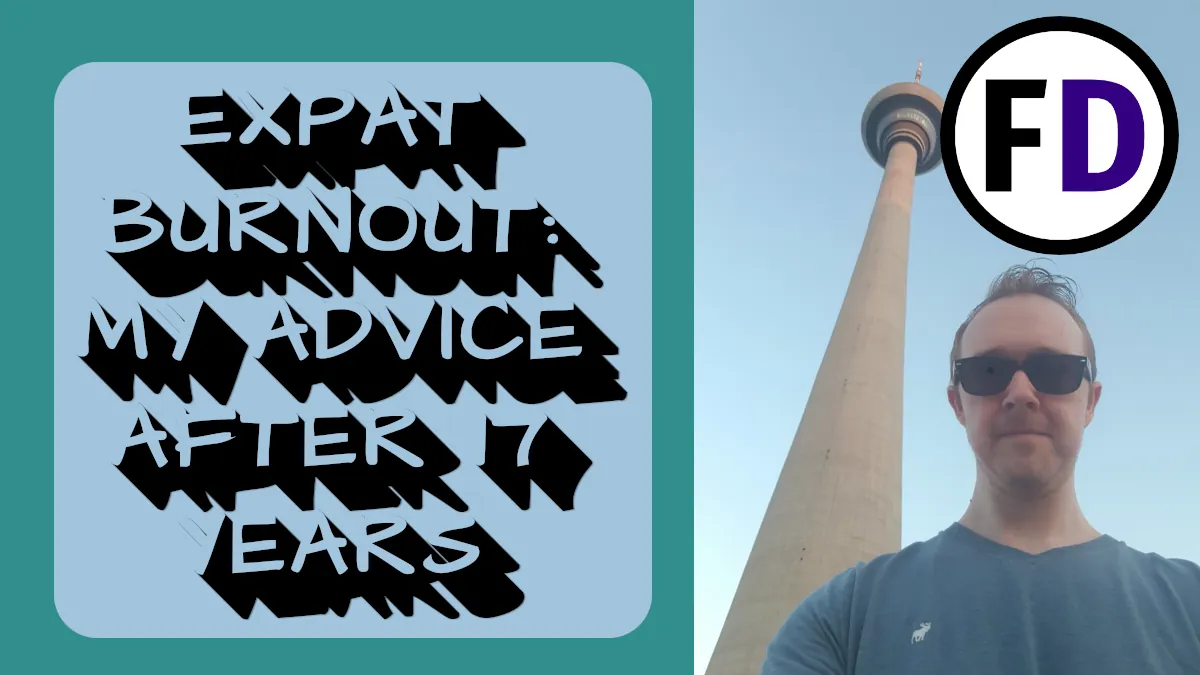Are you unsure if you’re really an introvert or an extrovert? Do you seem to straddle the line between the two personality types? You may be an introverted extrovert, someone who’s naturally outgoing but also displays some of the characteristics of a more inwardly focused person.
In this post, I explore what an introverted extrovert is, how to know if you are one and what it means for you if you are.
Table of Contents
- What is an Introverted Extrovert
- How common are introverted extroverts?
- How to know if you’re an introverted extrovert
- Benefits of Being an introverted extrovert
- The Challenges of Being an Introverted Extrovert
- Why Do I Need to Know?
- Final Thoughts
What is an Introverted Extrovert

The terms introversion and extraversion were first coined by Swiss psychiatrist Carl Jung. He believed that extraverts turned their energy outward (literally extra=out, vert=turn) while introverts turned their energy inwards.
You’ve heard of introverts and extroverts, but there are some categories that fall between these two personality types, namely introverted extroverts and extroverted introverts. Introversion and extroversion are not characteristics that are set in stone, you’re not either one or the other. They are instead two extremes of a personality spectrum.
People who fall far to the left of this spectrum are classed as highly introverted and usually display most of the introverted characteristics. Whereas those who fall to the far right, are classed as highly extroverted and have most of the extroverted personality traits.
It is the area that falls between these two extremes where most people lie and closer to the center are those that straddle both of these personality types. Introverted extroverts are those that fall very close to the center of this scale. They are naturally extroverts but also have many introverted characteristics. like extraverted introverts, they show signs of possessing personality traits from both sides of the spectrum.
How common are introverted extroverts?
While it’s impossible to put a number on just how many introverted extroverts there really are, some research has been done. Two-thirds of people view themselves as neither introverted nor extroverted, landing somewhere in the ambivert range. I think it’s fair to say that a quarter of those people could be counted as introverted extroverts.
This makes approximately 17% of the population introverted extroverts.
How to know if you’re an introverted extrovert
A personality test is something all types of people should take and there are a few to choose from. The more common ones are the big five, DISC and Myers-Briggs.
The Big Five Personality Test
The big five is a personality test that analyses you based on five personality types. Take the Big Five test here for free.
- Extraversion
- Agreeableness
- Openness
- Conscientiousness
- Neuroticism
The results from the Big Five test will show you where on each of these five scales you land. One of the results of the big five personality test will tell you exactly where on the introversion/extraversion scale you fall.
DISC

A DISC personality test tests you on two axes. Find a free DISC test here.
- Outward/Inward focus
- People/Task focus
Introverted extroverts are likely to score high in both
Myers-Briggs Type Inventory
The Myers-Briggs Type Inventory is a very common personality test, many people know by heart the four letters that describe their personality types, such as INTP or ESTJ. Find a free Myers-Briggs test here.
According to Myers Briggs’s personality theory, there are no real introverted extroverts as although everyone can have characteristics from either side of the spectrum we all fall into one side or the other. That being said some may argue that an INFJ is the closest personality type in the Myers-Briggs inventory that correlates to an introverted extrovert. INFJ stands for
- Introverted
- Intuitive
- Feelers
- Judgers
There are also other personality tests you can take such as the Enneagram and Cliftonstrengths but most likely the tests above will give you all the information you need.
An introverted extrovert can be difficult to spot sometimes because they have traits from both sides of the spectrum. You might have friends that say you can be shy but are also quite outspoken at times. You might be well-spoken even in a crowd and yet not be enjoying yourself.
Take a look and see if the following characteristics describe you. If they do you may be an introverted extrovert.
Social Situations Drain you
Do you ever return from social events, especially with lots of people, and feel drained? So much so that you need to decompress with some alone time? While there you are able to put on a good face and enjoy the party or event, even talking to people confidently and starting conversations, but once out the door you feel a sudden drop in energy.
When you get home you tell your loved ones “I just need a little alone time” and go into a quiet room by yourself. Once the door is closed behind you, you might do a little reading, browsing online, watching videos, or playing an online game, anything that doesn’t involve socializing with others.
It’s not that you don’t like other people or even socialize with them, it’s that the pressure of being present in the conversation eventually tires you out.
You don’t enjoy meeting new people
You may not hate spending time with your friends but the idea of being in a room with people you don’t know brings out the introvert in you. You’d rather spend time alone than meet new people or worse, have to make polite small talk with them.
Even if you learned how to make more friends, you still wouldn’t enjoy the process.
Are you a charismatic loner?
You feel you’re a reserved person, and internally you think you might be an introvert but in your outer world, you’re good at public speaking and seek out stimulating experiences
You need to know about social events in advance
The last thing an introverted extrovert wants is a surprise visit or to be told they have to go out to a function last minute. You might not be socially awkward or even dislike social activities but you do feel a certain amount of pressure when socializing. Knowing well in advance allows you to prepare yourself for an upcoming event and which gives you more of a sense of control.
You enjoy using calendars and other time management tools to schedule your time. You just wished others would do the same!
You may be unwilling, upset, or even angry when a friend or family member suddenly announces that you’re going out with them at that moment. This can be seen as antisocial or uncooperative but that’s actually not the case. It’s not that you are unwilling to socialize it’s just that you feel a lot of pressure when you don’t have time to mentally prepare for it.
Friends like to lean on you
People with introverted tendencies are usually thoughtful and good at analyzing situations, this makes you a great shoulder for your friends to lean on. When friends come to you with problems, the focus is all on them which reduces your social anxiety and need to ‘perform.’
Introverted extroverts often do best socially when they are one-on-one too and giving advice to a friend or just listening to them is a way to build trust without going far out of your comfort zone.
You’re the one contacting them
It may seem counterintuitive but introverted extroverts are often the ones maintaining contact with their friends.
It might be your thoughtful nature that makes you feel uncomfortable when too much time has passed without sending them a message. It might be that you just want to talk to them. Introverted extroverts still need their friends so it’s not surprising that they would be the first to message their friends and if the result was meeting for a quiet night in or at a peaceful cafe, the introverted extrovert would be pleased.
On the occasion when the friend messages back with an invitation to a busy even or to join a group chat with a dozen friends, pangs of regret are likely to strike you.
You don’t Like Meaningless Chatter or Smalltalk
You might be happy to be engrossed in a deep conversation with a close friend about something important to both of you, but when the conversation runs dry and there’s not much left to talk about, you start looking for the conversational exit.
True extraverts thrive on social interactions even when no one wants to speak up, they’re happier being talkative anyway, even if it’s just about the weather.
But you start thinking about the other things you could be doing with these precious moments but rather than tell your friend to get going, you continue making meaningless small talk while starting to resent it in the back of your mind. It’s not until there is a natural end in the conversation that you feel confident enough to say “well I better get going, I’ve got XYZ to be doing.” In reality, however, you’d much prefer them to be the one who initiated the end of the conversation.
Small talk with a close friend is one thing, but when it’s with someone you don’t even know it can be excruciating. You don’t want to be rude so you keep talking but inside you’re feeling more and more frustrated.
People Say You’re…
- Your family says you were a shy child
- Close friends say you’re highly sensitive
- Around other people, you can’t stop talking and they say you have an assertive temperament
- Some say you’re outgoing and an extravert
- But close friends know you don’t like being the center of attention
Benefits of Being an introverted extrovert
Introverted extroverts have the best of both worlds, as long as they remember to balance both sides of their personality they have:
- The people skills of extroverts
- The Analytical Skills of introverts
- Ability to talk to a crowd
- Ability to do highly focused solo work
The Challenges of Being an Introverted Extrovert
It’s possible that the introverted side of your nature may make some jobs a bad fit for you so you’ll need to think carefully when deciding a career path.
The expectation of others can be hard for introverted extroverts. You may seem like the life of a party and friends or colleagues may be surprised to see you the next day when you’re feeling more introverted and acting quieter and self-reflective.
The ability to act both like an extrovert and an introvert can also be a challenge for introverted extroverts, rather than having one speed, they need to assess the situation and decide how they should act.
Balance is key to being successful as an introverted extrovert, if you’ve spent all afternoon at a social event, knowing that you’re going to need downtime to bring yourself back to equilibrium can be a challenge especially if you don’t have complete control over your time.
Why Do I Need to Know?
Being aware of your personality type and how your mind works can be really helpful. When you’re feeling run down, tired, or exhausted, knowing that being an introverted extrovert makes social events taxing for you, is valuable. You can quickly realize that maybe all you need is some alone time and you’ll be feeling good again.
Does it even matter if you are an introverted extrovert or whether or not you know it? I would argue that it does.
Ultimately any knowledge you can gain about yourself can be useful. There are certain aspects of ourselves that we are fully aware of or have complete control over. We know our physical features, how athletic we are, and to a certain degree, our intelligence. But most people don’t know why they behave the way they do or react in the way they do. This is because most of what we do, think, and say is not the result of our logical, thought-out, conscious mind. Most of what we do is on autopilot.
We all find ourselves walking into the kitchen and opening the fridge absentmindedly without clearly thinking “I am going to walk into the kitchen and open the fridge.” This is the subconscious mind at work, it knows you are hungry and is directing you because it knows that there’s usually food in the fridge.
Did you ever look in the fridge, realize there’s nothing in there, and close the door but a minute later you were standing in front of it again with the door open? Ever do that multiple times in a row? This is again not the work of your logical prefrontal cortex, it’s the subconscious mind directing our actions.
The more we can understand our personalities the more we will understand the behavior of the unconscious and give us a better chance of taking control and changing the behaviors we want to change or at least understanding why we feel a certain way.
For example, understanding that the introverted side of you prefers some notice before a social interaction is planned to start. Once you know this, it doesn’t take much to explain it to your families and friends, who can then try to be more thoughtful in giving you more notice when they can.
Final Thoughts
Although where we fall on the introversion scale isn’t the be-all end-all of personality, it does give us valuable information we can use to become better people. We’re all on a personal development journey, it’s just that some of get further than others. Being an introverted extrovert is a gift, so use it to develop yourself further and keep it in mind when you fail.






